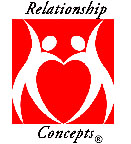Do you and your partner have trouble agreeing on how often to have sex? This article will show you how to work out your sexual desire differences and discover sexual enhancement. Couples who come in for sex therapy and counseling often have a difference in their desire for sex. In counseling we call this problem desire discrepancy and it is surprisingly difficult for couples to discuss. One reason for this difficulty is the assumptions people make.
The one who wants more sex may leap to conclusions and say, “You don’t want me” or “You don’t love me.” The one who wants sex less frequently may say, “I hate the constant pressure” or even, “You don’t love me, you just use me for sex.” With statements like these, the discussion can be very painful.
Why the Difference?
Most couples experience some difference in how often each one wants sex. When the difference is large the cause is probably more than the usual variations in feeling that people have and it often sends couples in for counseling and sex therapy for sexual enhancement.
The underlying causes can be relationship problems, different expectations, physical problems and negative sexual experiences. Relationship difficulties such as fears of intimacy or unresolved arguments can lead partners to have different needs for sex. I often see couples for counseling and sex therapy who end up working on the underlying relationship problems.
People have very different expectations and assumptions about what constitutes normal frequency of sex. Sometimes people think they should be having sex more often than they really want to. Couples can get stuck in forcing themselves to have sex for sexual enhancement and working at it instead of enjoying it. The solution is to spend more time listening to each other’s feelings and less in doing what you think you should do.
Your Body and Your Emotions
I often have couples in counseling and sex therapy see a doctor to rule out physical problems such as thyroid disease or hormone imbalances that can lead to low desire. Painful intercourse often leads to a decrease in sex drive. Unfortunately some people find it so embarrassing to talk about sex that they will live with the pain instead of bringing it up and taking care of it. These problems may require medical attention and a sensitive physician can be a big help. In addition physicians often recommend relaxation techniques and ways to enhance a positive feeling and attitude towards sex.
Depression is a common cause of low desire. One symptom of depression is anhedonia which means “lacking interest in pleasure and sex.” In counseling I run into this problem about 20% of the time.
Poor physical condition due to smoking, lack of exercise and a high fat diet can cause a decrease in desire. Chronic disease and pain also can reduce desire for sex. It can also happen that the partner of someone with a disease like cancer may assume that you shouldn’t have sex with someone who is sick. However, this can leave the one who is sick feeling undesirable. Chemotherapy can make you so sick that you don’t want anything to do with sex. But at other times it can be a reaffirmation of life and your loving relationship. A frank and honest discussion can clear the air in a hurry and lead to sexual enhancement.
Past Bad Experiences
Many people have had negative experiences around sex. Sadly this creates negative sexual attitudes and discomfort with sex. Counseling and Sex therapy can help in such cases. In addition my patients have found using one of the mp3s I have included in the Pure Pleasure System to be especially helpful. Look at the information on my other website SexTherapyDoctor.Com
How to Discuss Frequency
So how do you discuss questions like sexual frequency? It should be a time when you are happy and feeling connected. Also It is useful to bring up the topic at a time when you are not ready to have sex. I use the following quick questionnaire in counseling and sex therapy to get a good idea of each partner’s experience with and desire for sex.
Find a time when you are both comfortable to discuss how you both feel your love life is going for sexual enhancement, especially before a problem develops. Answering the questions at the end of this article and comparing the results can be a good start. As with all good communication avoid labeling, name calling, and especially in this case put judgement of good and bad aside. There is no right or wrong amount of sex to have. It is what works for the two of you as a couple.
Quick Questionnaire
How frequently do you want sex?
How frequently do you think your partner wants sex?
Do you often feel exhausted, sad or irritable?
Is intercourse painful for you or your partner?
Do you hold back from telling your partner how often you want sex?

